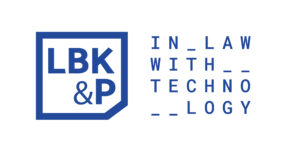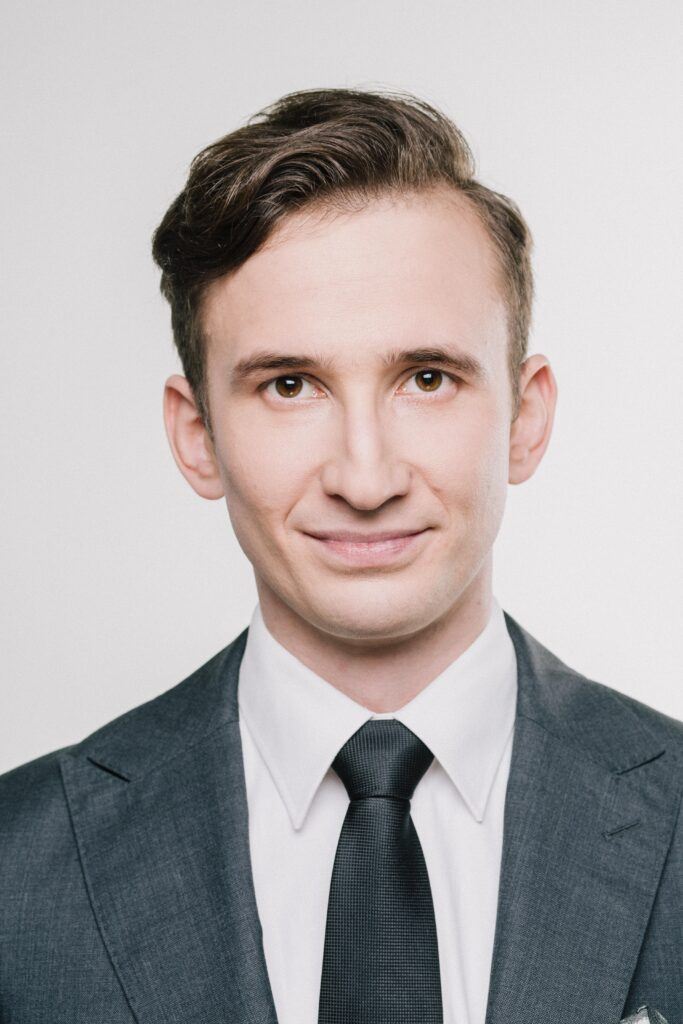Lesniewski Borkiewicz Kostka & Partners > Wroclaw, Poland > Profile
Lesniewski Borkiewicz Kostka & Partners Offices

Gen. Władysława Sikorskiego 26
53-659 Wrocław
Poland
- Go to...
- Profile
- Main Contacts
- Lawyer Profiles
- Interviews
- Focus On
- Press Releases
- Comparative Guides
Lesniewski Borkiewicz Kostka & Partners > Profile
Our work is focused on the new technology industry and providing legal services tailored to specific needs.
We have been dealing with legal protection of data since 2010, before the world heard of GDPR. Supporting Poland’s largest social network and other entities over the years, we have had real impact on shaping the authorities’ approach in this area. The experience we gained then prepared us organically for the implementation of GDPR for our clients from 2018 onwards.
Thanks to our experience, we made a name for ourselves as special task experts in the field of GDPR. We also deal with intellectual property matters and other issues faced by modern businesses where law and technology meet.
Our clients include mainly IT, TMT and e-commerce companies – both international corporations and domestic software houses. Our services are provided within the framework of individual projects or regular legal services. We provide concrete answers and propose solutions. We offer tools to mitigate risks that arise internally, with partners and with investors.
We are an active member of the Polish Chamber of Information Technology and Telecommunications and – as the only Polish law firm – a partner of ICLG Legal Group in the field of Data Protection and Cyber Security.
We work with agility, use simple language in speaking and writing. We become a part of the client’s team. Our focus is effectiveness. This sets us apart and makes tech professionals enjoy working with us. Find out what we can do for you.
Main areas of practice
E-commerce: Online business requires innovative, tailor-made legal solutions. The key to success is achieving legal security while remaining innovative, dynamic and effective. Technology is evolving non-stop – legal advice must be equally dynamic. As a law firm, we have worked for many years with the biggest names in e-commerce and TMT industry – shops, applications, websites. We have supported the development of the largest and most recognisable e-shops, as well as producers of niche, boutique products and solutions.
Personal data protection: As advisors, we have been involved in the legal protection of personal data since 2010, when the “old” Data Protection Act was in force. Supporting Poland’s largest social network and other entities over the years, we have had real impact on shaping the authorities’ practice in this area. That experience made us naturally prepared for the implementation of GDPR for our clients from 2018 onwards, always in accordance with clients’ specific needs.
Game development: We have been working with game dev since 2015, providing tailor-made services to our Clients – from small independent studios to the biggest players developing AAA games. Our main strength is extensive practical experience: we’ve been involved in both the creation of new entities (tailoring the legal form to their needs), and in the preparation of comprehensive documentation for existing developers and game launches (such as end-user licence agreement, general terms and conditions of service, privacy policies, etc., securing the issue of end credits, taking into consideration the aspects of personal rights and GDPR, or adequate description of the game website).
Mergers, transformations, transactions (M&A): Mergers, acquisitions, sales, conversions and divisions of organisations are one of our leading specialisations. Every business faces constant changes, we understand that. They usually involve the need to change the form of establishment, to attract investors, to obtain financing, or to exit or join a venture. Whether the plan involves internal reorganisation (intra-group transactions), dynamic growth through the purchase or acquisition of another company, or perhaps an exit from the business (e.g. selling shares), we know how to carry out these safely, optimally for all parties and with minimal operational and tax costs. One of our particular strengths is projects relating to technology companies, online shops and IT organisations, as we know those sectors inside out. Each year, we advise on more than a dozen such processes that often involve cross-border aspects, real estate, negotiating with demanding partners from all over the world. We also coordinate the work of law firms from different countries.
IT contracts: “Good fences make good neighbours”. Solid contracts are the backbone of business, especially in a rapidly changing IT environment. They cover risks that exist when the contract is concluded and those that may arise in the future – during its performance or after termination. We prepare model contracts that take into account the specific nature of the industry and current practice of courts and authorities (provided that public institutions keep up with the changes). Contracts prepared by our experts include carefully thought out and tailored solutions and comprehensively secure taxation matters, both in terms of income tax, VAT and those related to cross-border transactions.
Labor law and employment structure: The right team of specialists is a decisive factor in gaining advantage by a modern business. We support our clients in the effective management of their workforce and the creation of the optimal employment structure.
Intellectual property and trademarks: Running a business requires skilfull use of intellectual property. We propose effective legal tools that allow you both to benefit from the best solutions offered by the market and to monetise and protect your products, marks and know-how.
Corporate consulting and compliance: Operating as a commercial company entails compliance with a number of formal rules, including obtaining approvals from statutory bodies, periodic reporting and record keeping. We handle commercial and corporate matters relating to the operation of public and private companies. We represent clients’ interests and provide legal support at every stage of company’s existence – from its incorporation, through development, to sale or closure. We conduct and help prepare for due diligence processes.
Protection of image, reputation and personal rights: We help protect the image, reputation and personal assets of our clients, in particular companies, public figures, influencers, and artists. We take legal steps against harmful publications in social media and the press.
Taxes: Every contract, T&Cs, or action in business has certain tax consequences. Sometimes they are different than the legal qualification of the act. Designing advice, transactions or documents, we review them looking for potential tax obligations, current practice of the authorities and any planned changes. We work with tax advisors, experts and accountants. This results in comprehensive solutions that are feasible and secure, not only legally but also fiscally.
Key clients
Global Logic; KGHM; CCC; eobuwie; Techland; Monterail; Modivo; Salesbook; Oktawave; Fabrity; Grzegrzółka&Ko; Secure Mind; Telenor; Tomed; Webini; Angel Construction; Zamek Topacz
Main Contacts
| Department | Name | Telephone | |
|---|---|---|---|
| Grzegorz Leśniewski | gl@lbplegal.com | +48 531 871 707 | |
| Mateusz Borkiewicz | mb@lbplegal.com | +48 663 683 888 | |
| Wojciech Kostka | wk@lbplegal.com | +48 512 243 919 |
Lawyer Profiles
| Photo | Name | Position | Profile |
|---|---|---|---|

|
Mr Mateusz Borkiewicz | Managing Partner, Attorney at law | View Profile |

|
Mr Jacek Cieśliński | Attorney at law | View Profile |

|
Ms Marta Czeladzka | Attorney at law | View Profile |

|
Mr Marek Czwojdziński | Trainee Attorney at law | View Profile |

|
Mr Paweł Kempa-Dymiński | Attorney at law | View Profile |

|
Mrs Ewa Knapińska | Attorney at law | View Profile |

|
Mr Wojciech Kostka | Managing Partner, Attorney at law | View Profile |

|
Dr Wojciech Lamik | Attorney at law | View Profile |

|
Mr Grzegorz Leśniewski | Managing Partner, Attorney at law | View Profile |

|
Mrs Marta Maliszewska | Attorney at law | View Profile |

|
Mrs Monika Skaba-Szklarska | Attorney at law | View Profile |

|
Mrs Natalia Wojciechowska-Chałupińska | Attorney at law | View Profile |

|
Mrs Anna Żmidzińska | Attorney at law | View Profile |

|
Ms Marta Żukowska | Attorney at law | View Profile |
Staff Figures
Number of lawyers: : 15Languages
Polish English German Italian SpanishMemberships
Polish Chamber of Information Technology and Telecommunications (PIIT)Other
Other offices : WarsawFocus On
Privacy laws in Poland
The laws that affect the protection of personal data in Poland are not limited only to the GDPR but also include other acts i.a.:
1. Protection of Personal Data Act of 10 May 2018, which specifies in particular:
-
- the procedure for notifying the appointment of a Data Protection Officer (“DPO”);
- monitoring compliance with the personal data protection provisions;
- criminal liability for violating such provisions;
2. Telecommunications Act of 16 July 2004 (ePrivacy Directive implementation, revised by Directive 2009/136) – in practice, this applies to every entrepreneur with a website (probably will be replaced by a new regulation soon) or to any entrepreneur willing to conduct direct marketing activities;
3. Labour Code of 23 December 1997 (defines in detail the rules for the processing of employees’ personal data).
What’s new?
The biggest recent update in Polish data protection concerns the Labour Code in area of remote work and sobriety tests / tests for use of illegal substances.
Poland fits also into broader international trends. Increased legal focus is set on the AI where main issues concern e.g. copyrights, responsibility for the result of AI “work”, confidentiality of information and the a/m personal data protection. An important aspect is the use of algorithms, and the content of inquiries that users address to AI.
Other significant privacy related focus points in Poland include:
-
- international data transfers;
- children’s personal data;
- the cybersecurity of websites and IT systems;
- the role of DPO.
When you should consider GDPR & Polish privacy laws compliance?
In some cases, you need to be GDPR compliant even if you are not from Poland or the European Union.
Processing data is, pretty much, everything you can do with it: managing, storing, collecting, modifying and deleting.
GDPR is usually applicable if the processing is done for business purposes at least partly by any automated means (for example data will be stored on a computer) and:
-
- data controller is based within the EU; OR
- processing concerns data subjects who are in the EU in the context of offering them goods or services (even for free) or monitoring their behaviour (if the behaviour takes place in the EU).
So, if you are a data controller or a data processor and GDPR is applicable based on the above, you must take necessary steps.
Privacy law sets a number of rules on how much data you can collect and what can you do with it. Moreover, in Poland President of the Personal Data Protection Office can effectively enforce GDPR and Polish privacy laws. The President can not only require you to stop processing activities that are not privacy law compliant, but also to show proper documentation or to pay significant fines.
From a positive perspective, privacy law can also be used as an opportunity to improve the quality of data you are processing and security levels within your company.
About us
As the advisors we have been dealing with legal protection of personal data since 2010, long before the world even heard of GDPR.
Supporting Poland’s largest social network and other entities over the years, we had real impact on shaping the authorities’ approach in this area. The experience we gained then prepared us organically for the implementation of GDPR for our clients from 2018 onwards.
Personal data protection is one of our key specializations. For years, we have been providing comprehensive services to tech companies at every stage of their development – we work with both start-ups and global corporations (considering cross-border data flows). We provide legal support for companies wishing to set up a business in Poland and to expand abroad – we regularly support international companies with expanding their activities to Poland and then provide them with ongoing support (including also suggesting best ways to obtain tax exceptions / tax credits for the company and for the team).
Whether the plan involves internal reorganization (intra-group transactions), dynamic growth through acquisition of another company, we know how to carry out these safely, optimally for all parties and with minimal operational and tax costs.
Find out what we can do for you.
By: Mateusz Borkiewicz, attorney at law, managing partner at Leśniewski Borkiewicz Kostka & Partners
Interviews
Grzegorz Leśniewski, Managing Partner

Grzegorz Leśniewski, Managing Partner at Leśniewski Borkiewicz Kostka & Partners explains how the firm is adapting to clients’ changing needs
What do you see as the main points that differentiate Leśniewski Borkiewicz Kostka & Partners from your competitors?
This question should be best asked of our clients [laughing]! But putting any modesty aside, we do hear from top executives around the globe that they are positively surprised with our direct communication, free of incomprehensible legal language and numerous disclaimers. We understand our role as a business partner and not only a legal adviser. Thus, our key objective is good understanding of our client’s needs and then giving the best possible solution. Of course, high legal competences of our team and deep understanding of new-tech sector counts as well, but many legal firms have them too.
Which practices do you see growing in the next 12 months? What are the drivers behind that?
If I were to bet my money on it, I would say: advisory services regarding Artificial Intelligence (AI). We already get many inquiries about safe ways to implement AI solutions, such as Midjurney or Chat GPT by tech companies in the EU as well as other technologies that recognize faces or read vehicles’ plates and so on. There are numerous cases where doubts arise, and our clients have a difficult choice to make: learn how to use it or wait to see how others do it. I believe that only the first answer allows to jump upfront before the competition. In the meantime, there are upcoming AI regulations both on EU and national levels, as well as practical compliance issues with regards to the existing laws (mostly data protection and IPR) and ethics. Fortunately for our firm, we have significant experience in practical implementation of such technologies and standards from legal perspective. We are not only not afraid of giving (or rather creating) legal solutions for these challenges but we actually are looking forward to it.
What’s the main change you’ve made in the firm that will benefit clients?
Well, the biggest game changer for us was starting to think and work as our clients do. We decided to learn from IT companies and implement their approach to legal work. I had several meetings with our most successful clients and friends working at C-level across high-tech industry to understand how they run their companies and what does it really mean to be “agile”. I keep having these meetings to stay up-to date. This benefits us as the firm as well as our clients. We even implemented some software tools for communication, project management and other tasks that were designed mainly for the IT sector but proved to be helpful to lawyers too. Now, as we share similar tools and approach, it often seems as we are part of inhouse teams of our clients, and both sides enjoy and benefit from it.
Is technology changing the way you interact with your clients, and the services you can provide them?
Definitely! The time when lawyers were writing long legal opinions, trying to impress their clients with legalese and expert legal terms are long gone (at least for us). We adapted to communicating with tools used in day-to-day work by our clients and to their language and style. Another issue is using tools to speed up our work and to make possible automations of different processes. Technology often allows us to work smarter not harder, and that is great.
Can you give us a practical example of how you have helped a client to add value to their business?
Some time ago a new client from outside EU came to a ask us for legal support with a highly innovative financial service that he was planning to introduce to Polish market. I cannot get into details, but it was supposed to make Internet transactions safer for buyers and sellers. During that first meeting we were able not only to suggest him adding additional features that he did not think of at the time (to avoid / solve disputes between users), but also to connect him with our other clients and partners. He saved money on development, reduced some major business risks, and then started offering even better service than he initially invented. We also helped with identifying two new categories of potential buyers of his services, as we knew where such services were needed. All this was on top of “standard” legal support, of course.
Are clients looking for stability and strategic direction from their law firms – where do you see the firm in three years’ time?
Yes, they do. Law firms must be highly trusted partners and therefore they need to have a good focus on the future. Our plan is to continue steady growth in terms of the number of lawyers we have onboard and to keep our talents. Our team is our key value and we are doing our best to make sure that everyone feels appreciated and has space to develop further. Especially in our line of business, where clients build relationships with specific advisors and not just our brand, we need to make sure that our working environment is friendly, well balanced, and gives perspective for long-term cooperation. So, in 3 years I hope to see us as a mid-sized firm with around 30 expert advisors, who enjoy their day-to-day work and have plenty of time to enjoy their out of work passions. So far all seems going that way.
Interviews
Marta Żukowska, Senior Specialist & Wojciech Kostka, Partner
From Pixels to Policies: Legal Insights for Game Developers in Poland
Wojciech Kostka, attorney at law, partner in the law firm Lesniewski Borkiewicz Kostka & Partners (lbplegal.com), vice-chairman of the Supervisory Board of Techland S.A.
Marta Żukowska, attorney at law, senior specialist with extensive experience in gamedev.
The Polish game developer market is booming. Why should game development studios think about legal issues from the very beginning?
WK: Indeed, the market is diversified, and Poland has become a leading country in gamedev not only in this part of Europe.
While providing services to both: large and smaller gamedev studios, it is clear that legal security requires comprehensiveness: from intellectual property, labor law, e-commerce, consumer rights, personal data to tax issues. NFT (non-fungible token) and AI issues are also increasingly emerging for detailed regulation.
Every, single project should be secured starting from the concept stage, to avoid “patching holes” later and exposing gamedev studio to civil claims or even criminal proceedings. Especially when the game achieves success the exposure is big (commensurate with the scale of success).
Are there any crucial issues or risks to think about first?
WK: There are many issues to be “taken care of”. While thinking about the game as the concept: f we surely need to confirm whether the idea and scenario do not infringe the rights of other works, because the line between inspiration and plagiarism is sometimes difficult to draw (in particular currently where the new ideas are being created every second).
We need to also choose a model of financing and provide the funding, which is a major legal project to lead and secure. At this stage it is good to think and plan the model of cooperation with the team, whichbecomes even more complicated within a cross-border team. If it is such a team, we need to remember also about permissions or sanction lists.
Another issue is ongoing assets mapping and legalization – we need to be sure that all of the game elements are used according to the law and duly implemented. Due, to the IT sector dynamics, acquisition of copyrights or obtaining licenses in an adequate way, including in particular the proper fields of exploitation of the game elements, will determine future distribution channels or the permissibility of, for example, gadget sales.
While working on the game we need to also have in mind that there are a number of game industry regulations and guidelines which provide many other issues to be taken care of, for example, the creation of end game credits, loot boxes, age ratings (PEGI, ESRB and others) – we need to remember that the sales of the game is closely related to the potential group of customers, which is based on the in-game content, like blood, violence, death etc.
A separate spectrum of challenges is connected with for example launching an online stone, in particular while taking into account a number of consumer regulations.
Finally, the icing on the cake is GDPR, which mandates concern for players’ privacy, including depending on their age.
While taking the above into account it is clear that the law imposes some common obligations on all of the gamedev studios. However, an industry-experienced lawyer takes into account the scale of the client’s business, its needs and goals, and is able to point out what is most important for the studio at a given stage, and what action entails the greatest risk (to be secured).
MŻ: I agree that there are many areas that should be taken care of. So, it is important to mark the crucial issues. Computer games often strike fear in the hearts of lawyers and creators alike, because of their complexity – the fact that they are works composed of many different works (graphics, music, font, computer program, etc.). What’s more: they are usually created by different people and often inspired by other works (such as books or films). All of these issues must be adequately secured in particular on the field of copyrights (but definitely not only in this scope).
In addition, the cross-border aspect of computer games makes it necessary to keep in mind not only the Polish legal system (while looking at polish gamedev studios), but also the law of the markets where the game will be available. The best way is to at least secure the crucial markets within which the game will be released.
You mentioned the legalization of assets used in the game, e.g. photos, videos. How to deal with this issue? Is it a common thing to use the assets from the publicly accessible, commercial databases
WK: Assets can be approached in two ways – creating “from scratch”. Currently, due to the complex character of the games, studios will use at least several databases of ready-made graphics, photos, animations etc. In this case, the key is to choose the right license, so as not to close off, for example, the possibility of distributing the game in certain markets or to certain audiences.
A separate, very hot topic is using artificial intelligence (already indicated above). Here, too, you need to analyze the licenses and the risks associated with using the results of AI work. I believe that this issue will become more and more relevant in the near future.
MŻ: While talking about the present game market we need to remember that computer game is a creative compilation of many elements, including: created exclusively for this particular game and already existing elements. And indeed: the use of assets available in public databases is a common phenomenon among developers.
The situation is easiest when the asset is created from scratch by the developer – in this context, there is no need to think about who the author is (we know it from the beginning) and, in principle, it remains only to determine what kind of work it is and to secure the issue of transferring the intellectual property rights to the asset, so that they belong to the game producer. By creating an asset yourself, you can at the same time create a work identical or similar to a work created by someone else. This is not usually plagiarism, but for the purpose of a possible dispute, the asset creation process should be archived.
In a situation where a developer uses an asset downloaded from a publicly available database, it is necessary to evaluate the regulations associated with such use. The license terms for larger libraries are usually found within the library site. The licenses may be different for a given asset, so a separate review of the regulating license must be made for each single item. You cannot use assets of someone else’s authorship or make minor changes to them without the permission of the original creator. As a rule, in the case of assets downloaded from databases, it is practically unheard of to transfer economic copyright, rather it is always a license.
On the other hand, when developing a work authored by another person, the creator makes a change and creates a new, independent work, the so-called dependent work. A dependent work is created by taking elements of a creative nature and incorporating them into our work. Such a dependent work cannot be disposed of and used without the permission of the creator of the original work.
Is the image protection a problem during the work on a computer game?
MŻ: A game can often use elements that are not works, but the use of them encroaches on other rights, such as trademarks or personal image rights (e.g., the use in a game of characters of real people, such as Keanu Reaves in Cyberpunk 2077, Barack Obama in Need for Speed: Carbon in 2008, Phil Collins in Grand Theft Auto: Vice City Stories). When creating characters in computer games, please note that the use of the image of real-life characters in games is commercial in nature and usually requires the consent of the person in question, in particular, this applies to the use of the image of celebrities, athletes, artists, etc.
Fictional characters may be the subject to independent copyright protection, as long as they meet the characteristics of a work, e.g. the character of James Bond, Godzilla – in such a case you must obtain permission to use the above-mentioned characters.
As a rule, you can use images of figures from previous eras (e.g. Napoleon) without obtaining permission. Important: there are many exceptions. For example: in Poland the exception is Frederic Chopin, whose name and image are specially and particularly protected; in other countries there may be similar regulations of dates. figures particularly important for the history of these countries – this should be verified each time.
You both have been looking at the gamedev market for many years. Are Polish developers mindful of the legal aspects?
WK: Large gamedev studios definitely are. Especially due to their international reputation and/or their presence, for example, on the stock markets. Their actions, regulations and policies can easily be spotted by gamers, control bodies or potential investors. In their case, the legal area is one of the more important to secure.
Smaller ones, on the other hand, often focus first and foremost on operations, and only when the “dust settles”, look at legal issues (with great reluctance, especially in the early stages).
MŻ: Yes, it really often goes this way. Especially when success has “surprised” the creators, securing the legal fields happens in a hurry and is a common source of stress. It is worth reminding that the subsequent implementation of the legal regulations is also more expensive, because it requires more involvement on the part of the lawyer. In that case we need to analyze and safeguard also the actions already taken, before providing the legal advisory (it’s like with medical treatment: prevention is cheaper than the treatment itself) – often we are working on months or even years of the studio activities.
In any case, however, you can see that awareness has increased significantly.
You mentioned GDPR. How should gamedev studio approach the issue of players’ privacy?
WK: Awareness is needed right from the very beginning: the game design stage. We need to, in particular, understand what user data we collect and what we do with it. Often, we have laudable goals – fraud protection, analysis, improvement. Most of these can be achieved, but this needs to be properly implemented within internal policies and privacy notices.
In addition, if we implement an online shop, we need to take care of this area as well (with particular care – due to the consumers), especially if we will combine and use data collected from different sources, make automated decisions, accept payments, etc.
MŻ: The global gaming market generates revenues greater than Hollywood and the music market combined, which gives an ocean of opportunities, but also risks. Addressing them in accordance with GDPR or consumer law is quite a challenge. Yet, an experienced lawyer should be able to secure them, without adversely affecting the conduct of business.
So, should a lawyer go hand in hand with a game developer from the very beginning?
WK: Yes, the key is to be sure that business is not constrained by the law more than it really needs to be. Particularly since the gamedev industry offers quite a lot of opportunities (due to the fact that it is “under-regulated”).
MŻ: The role of modern lawyers is no longer limited to giving clear “to the point” advice and proposing mechanisms adequate to the possibilities, but also comes down to networking and sharing experience, tossing around ideas etc. I think this is a great direction for the evolution of our profession, definitely better than scaring people with fines and/or the inspections of authorities that impose them.

